Key takeaways:
- Performance review anxiety often arises from fear of judgment, high expectations, and vague feedback.
- Proper preparation, like understanding evaluation criteria and outlining achievements, can significantly reduce anxiety and empower self-advocacy.
- Utilizing techniques such as the STAR method, journaling, and seeking ongoing feedback enhances self-assessment and professional growth.
- Post-review reflection and creating actionable plans based on feedback are essential for continuous improvement and development.
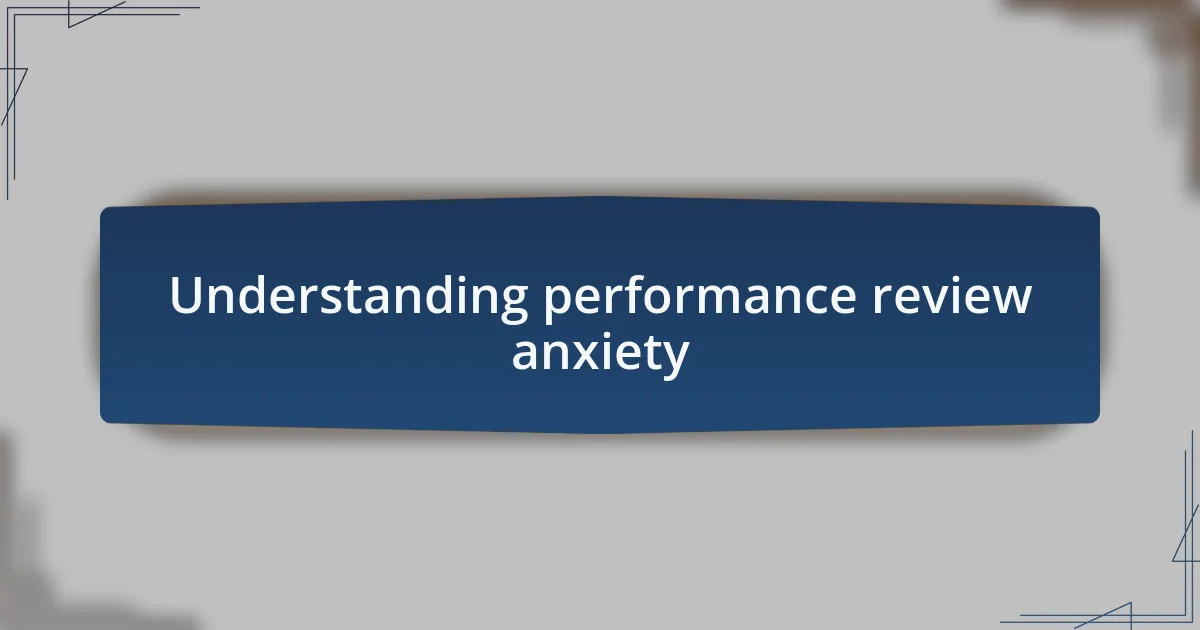
Understanding performance review anxiety
Performance review anxiety can be a surprisingly powerful emotion, one that I faced more than once in my career. I remember the sleepless nights leading up to a review, my mind racing with self-doubt and worry about what feedback I might receive. Does anyone ever feel truly ready for this moment?
It’s intriguing how performance reviews can stir up such deep-seated feelings. For me, the dread often stemmed from fearing how my work would be evaluated, often leading me to second-guess my achievements. Have you ever found yourself questioning your worth solely based on someone else’s perspective?
Understanding this anxiety involves recognizing that it often stems from a desire for validation and fear of failure. I’ve seen colleagues turn their apprehensions into motivation, using feedback as a tool for growth rather than a source of fear. Isn’t it empowering to shift that narrative and view performance reviews as opportunities for development?
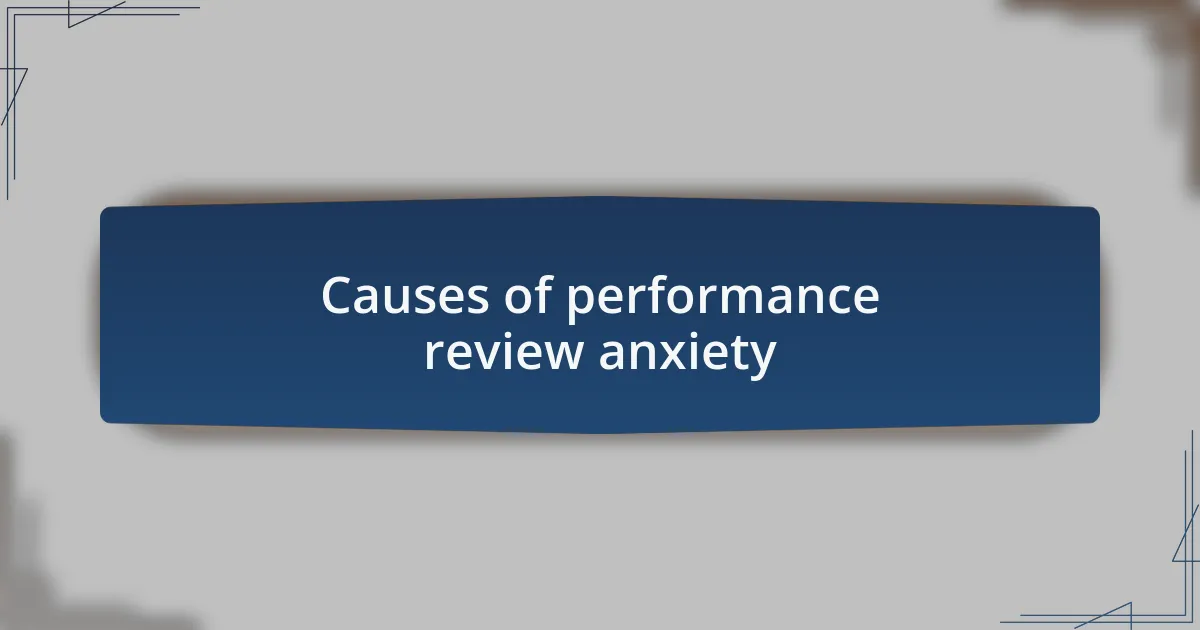
Causes of performance review anxiety
Performance review anxiety can often be traced back to the fear of judgment. I vividly recall a time when I improperly fixated on a single negative comment from a review, allowing it to overshadow all my accomplishments. Why is it that we give so much weight to the opinions of others?
Another underlying cause is the pressure to meet expectations—both our own and those set by our employers. I once participated in a review where I felt my goals were not only ambitious but almost unattainable. This experience left me wondering: is it possible that we sometimes create our own stress by setting the bar too high?
Lastly, the lack of clear communication can exacerbate anxiety surrounding performance reviews. I remember receiving vague feedback after a project, which left me more confused than enlightened. Have you ever thought about how specific, constructive feedback might have transformed that apprehension into a drive for improvement?
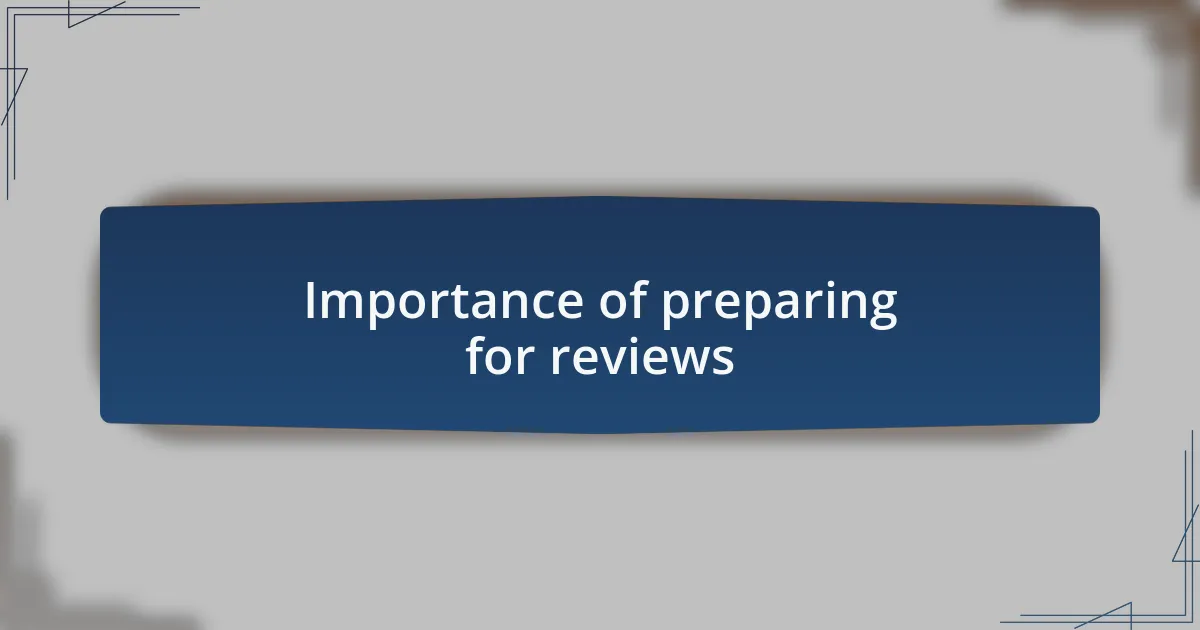
Importance of preparing for reviews
Preparation for performance reviews is essential because it directly impacts how we perceive the entire process. I recall preparing extensively before a particularly challenging review, organizing my achievements and feedback received throughout the year. This proactive approach not only calmed my nerves but also empowered me to engage constructively in the conversation; that little bit of preparation made a world of difference.
When we take the time to prepare, we create a sense of control over our narrative. I’ve had moments where I walked into a review feeling armed with specific examples and solutions. Instead of approaching it with trepidation, I felt ready to advocate for myself and my contributions. Hasn’t there been a time when you wished you had just a bit more preparation under your belt?
Furthermore, understanding what to expect can significantly alleviate anxiety. During one performance review, I made it a point to clarify the evaluation criteria beforehand. This allowed me to align my contributions with the key areas of focus. I found that having a clear roadmap left me feeling more secure, reinforcing the importance of preparation in navigating the often-treacherous waters of performance evaluations.
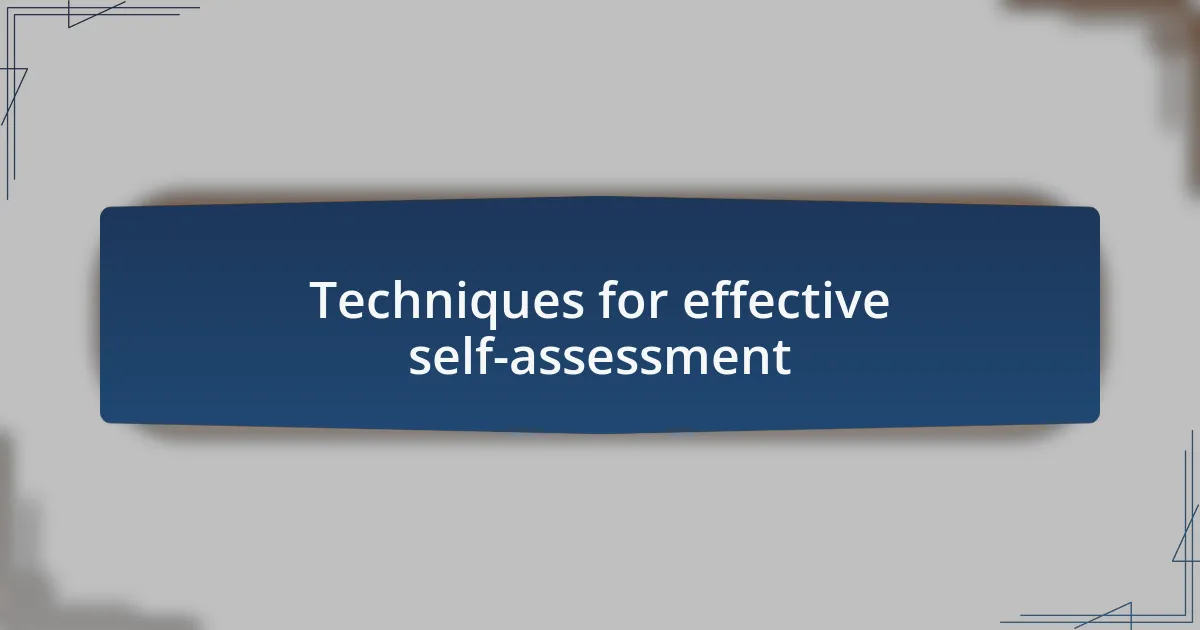
Techniques for effective self-assessment
When it comes to self-assessment, I find that reflecting on my accomplishments through a structured approach can be incredibly effective. For instance, I try using the STAR method—Situation, Task, Action, Result—to articulate each achievement clearly. This framework not only helps me organize my thoughts but also allows me to present my contributions in a way that resonates with others. Have you ever noticed how clarity can change the way others perceive your work?
Journaling my daily wins has also proven invaluable. At the end of each week, I jot down successes, no matter how small, and the learning experiences I faced. This practice has a dual benefit: it boosts my confidence and provides me with tangible evidence during reviews. I remember a time when I felt unrecognized for my efforts, but reviewing my journal changed that perspective. Isn’t it amazing how our own experiences can serve as a reminder of our value?
Another technique I advocate for is seeking feedback throughout the year, not just during the review period. I make it a point to check in with colleagues and supervisors, asking specific questions about my performance. This ongoing dialogue not only demystifies expectations but also creates a sense of continuous growth. Reflecting on feedback has at times been uncomfortable, but ultimately, it has led to profound insights. How do you integrate feedback into your own self-assessment journey?
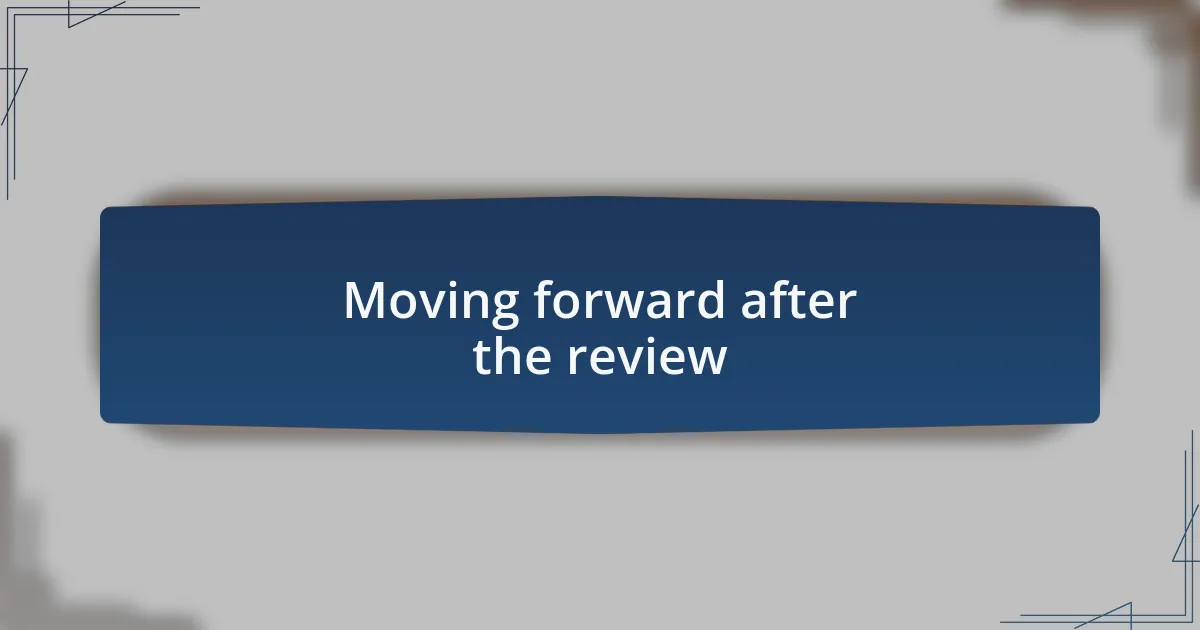
Moving forward after the review
After receiving feedback, I’ve learned it’s crucial to take a moment to reflect. I often sit down with a cup of coffee and the notes from my performance review. It’s a time for digesting the comments thoughtfully rather than reacting impulsively. Have you ever felt the urge to jump into action right away? I find that pausing helps me understand the feedback more deeply, allowing me to see both strengths and areas for improvement.
One strategy I have found particularly helpful is creating a personalized action plan based on the feedback received. For example, after a recent review, I identified specific skills I wanted to enhance and set measurable goals. This approach not only gave me clear directions but also turned my anxiety into motivation. How do you set goals after a review to keep yourself on track?
Another vital aspect of moving forward is maintaining open lines of communication with my supervisor and peers. I often schedule follow-up conversations to discuss my progress and any challenges I encounter. Establishing this rapport fosters a supportive environment where I feel comfortable sharing my journey. Can you remember a time when an ongoing conversation led to a significant breakthrough for you? I’ve experienced this, and it continually shapes my growth.